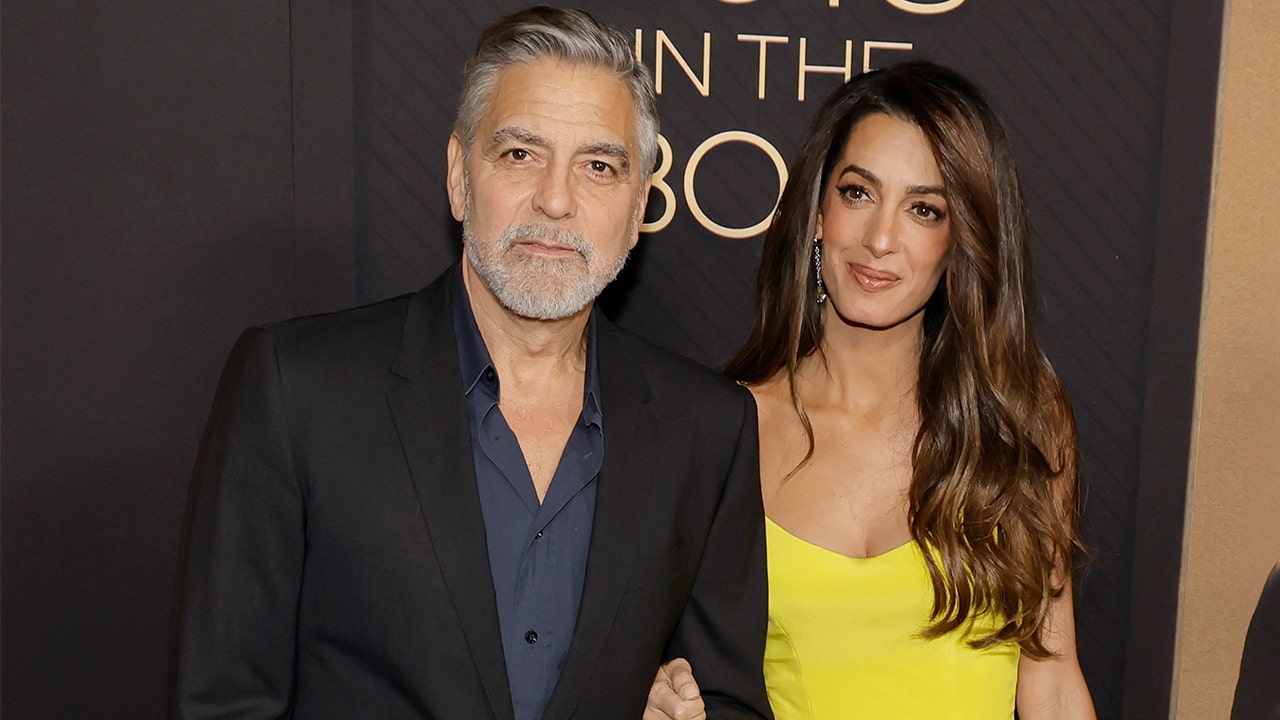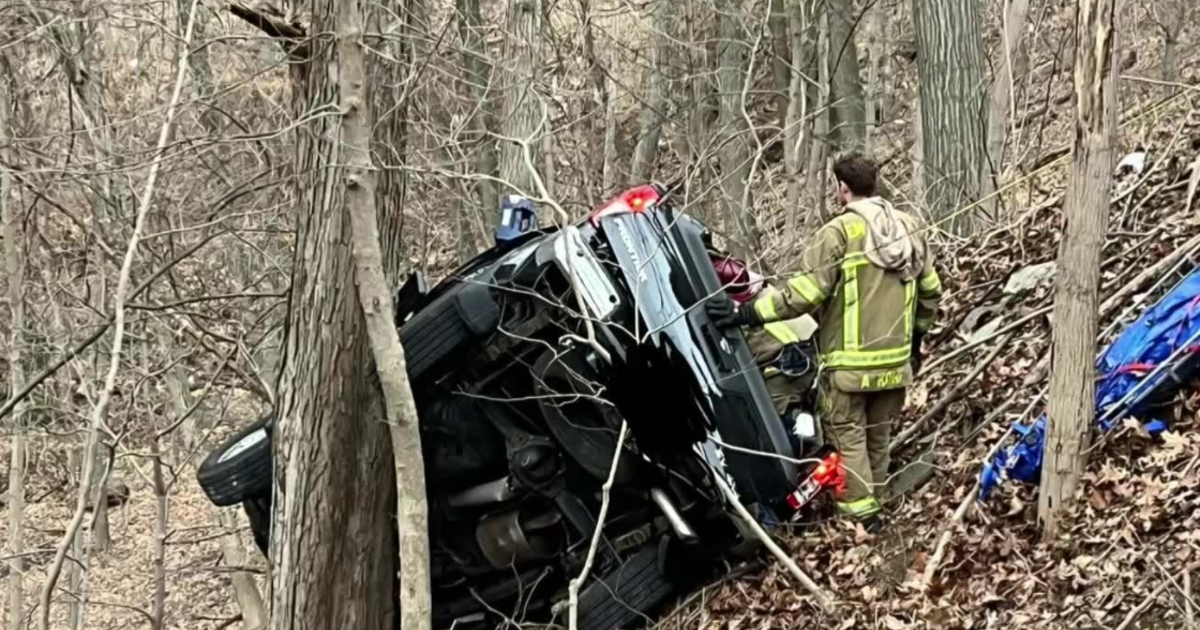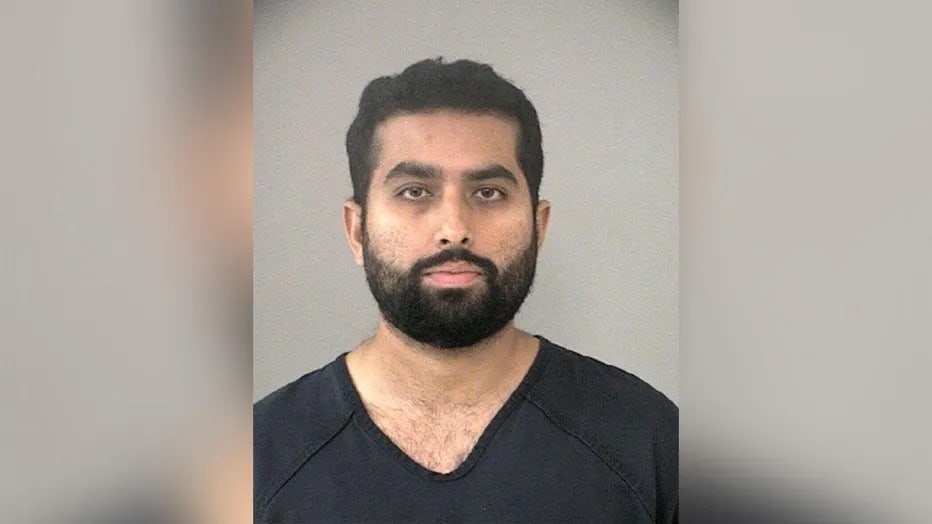Maryland Gov. Wes Moore will issue a mass pardon of more than 175,000 marijuana convictions Monday morning, one of the nation’s most sweeping acts of clemency involving a drug now in widespread recreational use.
Maryland
Maryland Rallies Behind Outrider Kreidel after Post-Preakness Van Accident

By T. D. Thornton
It was 9 p.m., several hours after the GI Preakness S. last Saturday, when Maryland Jockey Club (MJC) outrider Kaymarie Kreidel was basking in the glow of having escorted Seize the Grey (Arrogate) to the winner’s circle after his triumph in the second jewel of the Triple Crown.
Kreidel, 52, has worked as an outrider since retiring from being a jockey in 2006. She first started part-time in that job during morning training at Pimlico Race Course and Laurel Park, then about nine years ago landed the full-time outriding gig for the afternoon races.
With a reputation as a level-headed, well-respected horsewoman, her previous Preakness highlight was deftly catching the loose Bodexpress (Bodemeister) when he dropped his jockey at the start of the 2019 race. But the 2024 edition of the Preakness was her first time drawing the prestigious assignment of accompanying the winner back to the grandstand to be adorned in a blanket of Black-Eyed Susans while 5.5-million viewers looked on via national TV.
Kreidel works with a rotation of three of her own ponies, and the two she employed at Pimlico May 18 are both retired Thoroughbred geldings, the 17-year-old Witch Hunter and the 12-year-old Wolftrap.
Kreidel had already been up since 3 a.m. when she began the post-Preakness haul back to Laurel with her own truck and trailer 18 hours later, and although she was tired, the satisfaction of a long but safe weekend was the only thing riding shotgun with her as she began a 30-mile drive she has made countless times before.
“We had a very good Preakness weekend,” Kreidel told TDN in a Friday phone interview. “Everything was going great. Hunter was so proud, because this is the first time he’s taken a Preakness winner. Back in 2019, he was the one who caught the loose Preakness horse. So since this was my first year taking the Preakness winner, I felt like he should have the honor of doing it.”
Midway through her ride home in the dark, Kreidel was approaching a green light on Route 26, and she proceeded through, albeit with caution because the road dipped downward on a hill after the intersection.
“Unfortunately, the car behind me didn’t want to wait for my van to get through the light,” Kreidel explained. “So he zipped around me in the left lane and then cut across in front of me to make a right-hand turn. And when he did so, he hit the brakes, causing me to hit my brakes. But with the weight of the truck and we were going downhill, it kind of jerked the trailer a little bit, and Hunter slipped and fell.
“The other car didn’t stop,” Kreidel said. “Kept on going. Probably did not realize anything. Probably saw me stop, but since I didn’t hit him, he kept on going. But when I stopped I felt and heard the scrambling behind me.
“I put my truck in park, and I jumped out,” Kreidel continued. “When I opened the back door, I just busted out crying, because, unfortunately, Hunter was trapped and getting trampled beneath Wolftrap. They were both panicking. Hunter’s scrambling around, Wolftrap’s scrambling too, but in the process of doing so he’s stepping all over his brother. It was pretty scary and horrific, and I’m all by myself, there’s nobody with me.”
Kreidel knew she couldn’t safely back the horses out of the rear door because of the way they were positioned.
“I knew my only shot was to open the side door,” Kreidel said. “But in order to do that, I had to be stepping out into traffic. So I needed the traffic stopped so I could get Wolftrap out, get Hunter back up on his feet and get him out, and then assess the damage.”
Perhaps because her stoppage on the side of the road didn’t look like an obvious accident scene, no one stopped to help despite numerous vehicles whizzing by.
“So I went around to the side of my trailer, and I’m standing out in the middle of the road. I was waving my arms, just flagging for people to stop their cars. They’re driving around, they’re yelling at me, telling me, ‘Get your drunk ass off the road!’ and just saying so many things to me and being so rude. I must have had 50 or 60 cars go by me and not stop.
“And then finally this car stops in the middle of the road,” Kreidel said. “They put their flashers on, a guy gets out, and he walks over and says, ‘Can I help you? What’s wrong? You look upset.’ I said, ‘I was just involved with an incident with another car, my horses have fallen, and if I don’t get them out, they’re going to end up killing themselves inside my trailer.’”
Outrider Kaymarie Kreidel | Jim McCue
Kreidel said the car contained two couples who appeared to be in their mid-20s. They told her they knew absolutely nothing about horses, but that they would do everything they could to help.
First the driver repositioned his car to better block traffic, putting the vehicle in harm’s way to do so. One of the women phoned 911, and the others assisted in dropping the ramp of the van.
“I get Wolftrap out. I hand him to that first guy,” Kreidel recalled. “Hunter was all tied up, so his neck was twisted. It looked like his neck was broken, to be honest. But I knew it wasn’t because he was screaming. I don’t know if you’ve ever heard a horse scream, but it’s horrific.
“He was screaming at the top of his lungs. He’s twisted and pinned and he can’t get up. I started pulling on his tail and pushing on his shoulder, and I eventually get him up. He scrambles to his feet and goes flying out of the trailer in a panic.”
Eventually, the Good Samaritan driver ended up holding both horses while Kreidel looked them over. Wolftrap appeared okay, she said. But Hunter was bleeding profusely from his left leg.
Amazingly, Hunter and Wolftrap calmed down rather quickly, and they began munching on grass while the stranger held them.
“They were out there grazing, just out in somebody’s yard, I don’t know,” Kreidel said.
Kreidel phoned her son, the trainer T.J. Aguirre, Jr., who rushed right over.
Because Route 26 is well-travelled by racetrackers, Kreidel said that it didn’t take long for a number of people from the backstretch community who were also heading from Pimlico to Laurel to stop when they saw a horse van off to the side of the road.
A veterinarian was among them, all dressed up for a post-Preakness dinner with her significant other. She administered first aid while telling Kreidel that Hunter’s wound was dire enough to necessitate a trip to a major equine hospital like New Bolton Center, about 2 1/2 hours away in Pennsylvania.
“Now I’m in an absolute panic. I’ve got one trailer and two horses, and I’ve got to go in two different directions,” Kreidel said. “I probably had 20 or 30 racetrack people who were on their way home stopping to help, and everybody’s on their phones, and we’re all trying to find another truck and trailer than can get to us ASAP.”
Sarah Dilodovico, a Maryland Racing Commission veterinarian, heard what was happening and phoned Kreidel from the track. “I’ve got my truck. I don’t have a trailer. I’m at Pimlico,” she said. “I will find a trailer if I’ve got to steal somebody’s trailer.”
Fortunately, thievery wasn’t necessary, as another volunteer, the pony rider Sharon Greenberg, offered the use of her van. The plan ended up being that Aguirre would take Wolftrap back to Laurel in his mom’s trailer, while Dilodovico offered to drive Kreidel and Hunter to New Bolton in her truck with the borrowed van.
“During all this process, the two couples that originally stopped to help me, they just disappeared,” Kreidel said. “Once all the other people starting coming to help, they just made their way out of there, and I never got a chance to thank them properly. If it wasn’t for those four, I probably would have lost Hunter. They had never been around horses a day in their life. But they stopped and helped me. They saved my horse’s life.”
For the long ride to New Bolton, “I rode in the back with Hunter, and I ended up just sitting in the stall, bawling my eyes out,” Kreidel said.
Not only did Dilodovico help by driving, but Kreidel relied on her expertise once they arrived at the clinic, because Kreidel said she had no clue about the medical terms the veterinarians were throwing around.
“Sarah just said, ‘I’ve got this–let’s go ahead and do it.”
Hunter had no broken bones, needed stitches for the knee, and was very banged up and bruised, Kreidel said.
“In layman’s terms, half of his left knee was kind of like ripped off, so his joint capsules were ruptured inside,” Kreidel said. “Unfortunately, there was not much skin left on his knee, and a lot of it was exposed. If they didn’t end up working on it and cleaning it out immediately, I would have had to end up putting him down.”
By Sunday morning, Hunter was moved for observation to New Bolton’s orthopedic wing.
“They wanted to keep a close eye on him, because joints are very dangerous, especially knee joints,” Kreidel said. “But so far, knock on wood, as of [Friday], everything is progressing the right way. They’ll need about two weeks to make sure no infection sets in.
“As of now, they believe, with time, Hunter will be able to go back to his old job,” Kreidel said.
Wolftrap, Kreidel said, suffered only “minor nicks, minor scratches, nothing deep enough for stitches.”

Kaymarie Kreidel and Witch Hunter, shown catching Bodexpress during the 2019 Preakness | EquiSport Photos
Kreidel, who was not physically injured, is taking some time off from outriding, probably until the Pimlico meet ends and the racing shifts back to Laurel May 31.
“I’m fine. But I’m a little gun-shy, shall we say, about getting behind the wheel of a horse trailer right now,” Kreidel said. “My main thing, that I hope that you can stress when you write this article, is that drivers just need to relax around horse trailers. These aren’t just horses behind us. For most us, these horses are like our kids, our livelihoods, our loves. If that car of couples didn’t stop, I could have lost my horse, and it would have been like losing my child.”
Beyond the well-being of the horses, money is always a difficult topic in any veterinary emergency, and it was no different for Kreidel when New Bolton informed her how much the care would cost.
“When we got there, they said they needed a down payment of $4,000,” Kreidel recalled. “I kind of panic-laughed at them and said, ‘I’m sorry, but I don’t have $4,000 to give you. But I’ll give you $1,500, because that’s what I have on me.’”
But just like the word of mouth to come help with the accident spread fast among the Maryland backstretch community, Kreidel’s financial plight also resonated within the MJC’s hierarchy.
So it wasn’t long before an MJC executive sent Kreidel a text telling her that the MJC would be picking up the cost of Hunter’s veterinary bills at New Bolton.
“Kay means so much to us here. It’s the least we could do,” Georganne Hale, the MJC’s vice president of racing development, told TDN. “It’s so expensive just to walk in the door to get good veterinary care.”
Added Kreidel: “New Bolton was estimating $10,000. I personally don’t have $10,000. But I would work 20 jobs if I needed to to pay any vet bills for my horses.
“I keep saying a prayer and crossing my fingers to hope that Hunter’s recovery stays the positive way that it’s going,” Kreidel said. “Because I know Hunter. He loves his job. Literally, when it comes to racing in the afternoons, both Hunter and Wolftrap, when I come out of the tack room with the tack, and they both rear up and scream, like, ‘Pick me! Pick me!’ So I don’t think Hunter would be very happy if I couldn’t pick him any more.”

Maryland
Maryland governor to pardon 175,000 marijuana convictions in sweeping order

“I’m ecstatic that we have a real opportunity with what I’m signing to right a lot of historical wrongs,” Moore said in an interview. “If you want to be able to create inclusive economic growth, it means you have to start removing these barriers that continue to disproportionately sit on communities of color.”
Moore called the scope of his pardons “the most far-reaching and aggressive” executive action among officials nationwide who have sought to unwind criminal justice inequities with the growing legalization of marijuana. Nine other states and multiple cities have pardoned hundreds of thousands of old marijuana convictions in recent years, according to the National Organization for the Reform of Marijuana Laws. Legalized marijuana markets reap billions in revenue for state governments each year, and polls show public sentiment on the drug has also turned — with more people both embracing cannabis use and repudiating racial disparities exacerbated by the War on Drugs.
The pardons, timed to coincide with Wednesday’s Juneteenth holiday, a day that has come to symbolize the end of slavery in the United States, come from a rising star in the Democratic Party and the lone Black governor of a U.S. state whose ascent is built on the promise to “leave no one behind.”
Derek Liggins, 57, will be among those pardoned Monday, more than 16 years after his last day in prison for possessing and dealing marijuana in the late-1990s. Despite working hard to build a new life after serving time, Liggins said he still loses out on job opportunities and potential income.
“You can’t hold people accountable for possession of marijuana when you’ve got a dispensary on almost every corner,” he said.
Nationwide, according to the ACLU, Black people were more than three times as likely than White people to be arrested for marijuana possession. President Biden in 2022 issued a mass pardon of federal marijuana convictions — a reprieve for roughly 6,500 people — and urged governors to follow suit in states, where the vast majority of marijuana prosecutions take place.
Maryland’s pardon action rivals only Massachusetts, where the governor and an executive council together issued a blanket pardon in March expected to impact hundreds of thousands of people.
But Moore’s pardons appear to stand alone in the impact to communities of color in a state known for having one of the nation’s worst records for disproportionately incarcerating Black people for any crimes. More than 70 percent of the state’s male incarcerated population is Black, according to state data, more than double their proportion in society.
The most diverse state on the East Coast, Maryland has a dramatically higher concentration of Black people compared with other states that have issued broad pardons for marijuana: 33 percent of Maryland’s population is Black, while the next highest is Illinois, with 15 percent.
Maryland is the only state in the D.C. region that has fully legalized cannabis sales, though both the District and Virginia have decriminalized possession and have gray markets for the drug. Virginia and D.C. have not issued mass pardons of cannabis convictions, according to the National Organization for the Reform of Marijuana Laws, but Biden’s pardons had impact in D.C. because they applied to thousands of people arrested on federal land.
Maryland Attorney General Anthony G. Brown (D), called the pardons “certainly long overdue as a nation” and “a racial equity issue.”
“While the pardons will extend to anyone and everyone with a misdemeanor conviction for the possession of marijuana or paraphernalia, this unequivocally, without any doubt or reservation, disproportionately impacts — in a good way — Black and Brown Marylanders,” he said in an interview. “We are arrested and convicted at higher rates for possession and use of marijuana when the rate at which we used it was no different than any other category of people.”
Reducing the state’s mass incarceration disparity has been a chief goal of Moore, Brown and Maryland Public Defender Natasha Dartigue, who are all the first Black people to hold their offices in the state. Brown and Dartigue have launched a prosecutor-defender partnership to study the “the entire continuum of the criminal system,” from stops with law enforcement to reentry, trying to detect all junctures where discretion or bias could influence how justice is applied, and ultimately reform it.
Maryland officials said the pardons, which would also apply to people who are dead, will not result in releasing anyone from incarceration because none are imprisoned. Misdemeanor cannabis charges yield short sentences and prosecutions for misdemeanor criminal possession have stopped, as possessing small amounts of the drug is legal statewide.
Moore’s pardon action will automatically forgive every misdemeanor marijuana possession charge the Maryland judiciary could locate in the state’s electronic court records system, along with every misdemeanor paraphernalia charge tied to use or possession of marijuana. Maryland is the only state to pardon such paraphernalia charges, state officials said.
The electronic records in some Maryland jurisdictions date back to the 1980s, while others begin in the 1990s or later. People with older cannabis convictions stored on paper records may also apply for a pardon.
Demographic data on those pardoned is limited as of Monday.
But Moore’s administration noted nearly a quarter of the pardoned convictions were in Baltimore — a city with a history of unconstitutional over-policing of Black communities — even though less than 10 percent of the state’s population lives there. In the D.C. suburbs, roughly 12 percent of the pardoned convictions are in Prince George’s County, and 6 percent are in Montgomery County.
An ACLU report from 2013 noted that cannabis arrests in states increased nationwide in the first decade of the century, and Maryland and D.C. had among the top five highest arrest rates in the country.
As recently as 2020, according to a state analysis, cannabis arrests in Maryland exceeded 10,000 per year — nearly a decade after possession of small amounts was decriminalized and three years after it became legal to be a medical patient.
As Maryland prepared to legalize the drug for recreational use in 2022 — joining nearly two dozen other states — a report by state analysts found that White Maryland residents use cannabis at higher rates than Black residents, but Black people were more than twice as likely to be charged with possession. By law, 35 percent of the tax revenue generated by legal marijuana sales must go back into communities where cannabis enforcement was disproportionate to the rest of the state.
“The entire basis of the work that we did was about righting injustices from the War on Drugs,” said Del. Jheanelle K. Wilkins (D-Montgomery), chair of the Maryland Legislative Black Caucus. She noted Maryland has newly elevated Black people to key offices of power — the House speaker among them — and said, “We’re in this moment in Maryland where we’re truly focused on equity.”
People who benefit from the mass pardon will see the charges marked in state court records within two weeks, and they will be eliminated from criminal background check databases within 10 months. The convictions, however, will still appear in public court records unless someone applies for an expungement.
Other states have forgone pardons — which forgive the crime — and instead simply blocked cannabis convictions from public view. California, for example, has sealed, dismissed or expunged more than 200,000 convictions since a 2018 law passed requiring it.
The nationwide efforts to lessen the impact of marijuana convictions follow a recent loosening of federal regulations that could clear the way for more widespread access to the drug across the United States.
The Biden administration began working on the issue in 2022, when the president directed health officials to review whether existing science supported reclassifying cannabis so that it would no longer be considered a Schedule I controlled substance, which carries the most stringent restrictions. Other Schedule I drugs include heroin, LSD and ecstasy.
Health officials recommended reclassifying cannabis as a Schedule III drug, which puts it among substances such as Tylenol with codeine, ketamine and anabolic steroids. In April, the Drug Enforcement Administration concurred with federal health officials and Attorney General Merrick Garland officially recommended reclassifying the drug.
Although reclassification does not legalize cannabis federally, it does pave the way for more research on the drug and may broaden access to medical marijuana.
This year for the first time marijuana surpassed alcohol in daily use, with 17.7 million people reporting daily or near-daily marijuana use.
Liggins, who is being pardoned, said he applauds Moore’s forgiveness of marijuana crimes that would not be prosecuted under Maryland’s laws today — even if it wasn’t immediately clear how much this would transform his life.
Shortly after leaving prison in 2008, the Center for Urban Families helped find the job he still holds today with an HVAC construction company in Baltimore. He said his employer trusts him to lead teams on multimillion-dollar projects as a foreman, but Liggins cannot work on the highest-paying contracts with the federal government because of his marijuana convictions. Despite his pardon, Liggins is unsure whether a related charge for providing a false statement will still prevent him from working on those projects.
“A person can change,” he said. “A person should be able to pay their debt to society and start fresh.”
Ovetta Wiggins contributed to this report.
Maryland
DNA evidence from Los Angeles home invasion helps investigators find Maryland murder suspect

Authorities in Maryland tracked down a suspect connected to the 2023 killing of a mother of five with the help of DNA evidence from a home invasion in Los Angeles.
According to the Harford County Sheriff’s Office, Rachel Morin, 37, was found dead one day after going missing on a hiking trail on August 6 of last year. Officials said Morin was attacked and pulled off the trail before being killed.
The case remained unsolved for several months as the suspect escaped the scene, with only sketches released depicting his face.
That all changed on Friday, however, when a man was arrested in Tulsa, Oklahoma on suspicion of murder and rape in connection to Morin’s death.
The turning point in the case, authorities said, was DNA evidence from a March 2023 home invasion in Los Angeles. The alleged killer, 23-year-old Victor Antonio Martinez-Hernandez, is also suspected of attacking a 9-year-old girl and her mother in the L.A. case.
Authorities say Martinez-Hernandez entered the United States illegally in February 2023 from El Salvador. He was identified through the DNA evidence in May, though it took more time to find his location before he was found in Tulsa.
There was no word on when he’ll be extradited to Maryland for a potential criminal trial. No motive is currently known, authorities said.
Maryland
Local Event: Game Time Stand Up Comedy Show at Sully's!

Game Time Comedy presents a night of great stand up comedy featuring nationally-touring headliners Sasha Srbulj and Dan Altano. Also featuring Garrett Harvest.
About Your Comedians
Sasha Srbulj is a standup comedian and creator of the comedy special ‘Artificial Ignorance’ on Amazon Prime. He performs regularly at major clubs in New York, around the US & Internationally. His inspiration is drawn mostly from the feeling of “this can’t be it?!” and that faint notion that buying more crap may not be the path to peace & fulfillment. Sasha has traveled the world and found peace of mind nowhere. Performances in Paris, Barcelona, Los Angeles, and all over New York have done nothing to quench the turmoil of his mind growing like tendrils of curly hair from an ever more confused head. Audiences find the entire process very amusing. You can find his sensibility in the nooks of consciousness where flashes occur like “I shouldn’t be eating this.” & “We elected who?”.
Dan Altano has carved a name for himself in the national comedy scene by narrating his life story with brutal honesty, wit, and heart. Raised in New Jersey, Dan headlines clubs and theaters across the country. Dan’s 2023 Album, Stand-Up Dad, debuted at #1 on the iTunes Comedy Charts and is currently played on constant rotation on Sirius XM radio. Offstage, Dan is the co-host of the podcast Rank It! and is a member of the sketch comedy group Sketch Artists.
Tickets are only $10
-

 News1 week ago
News1 week agoIsrael used a U.S.-made bomb in a deadly U.N. school strike in Gaza
-

 World1 week ago
World1 week agoRussia-Ukraine war: List of key events, day 833
-

 Politics1 week ago
Politics1 week agoGeorge Clooney called White House to complain about Biden’s criticism of ICC and defend wife’s work: report
-

 Politics1 week ago
Politics1 week agoNewson, Dem leaders try to negotiate Prop 47 reform off California ballots, as GOP wants to let voters decide
-

 World1 week ago
World1 week agoDozens killed near Sudan’s capital as UN warns of soaring displacement
-

 World1 week ago
World1 week agoVideo: U.S. Official Responds to Israeli Strike on a U.N. School in Gaza
-

 World1 week ago
World1 week ago‘Bloody policies’: Bodies of 11 refugees and migrants recovered off Libya
-

 Politics1 week ago
Politics1 week agoEmbattled Biden border order loaded with loopholes 'to drive a truck through': critics




/cloudfront-us-east-1.images.arcpublishing.com/gray/4NPAFVUSXVHGZG6DTGAXSHG7UQ.PNG)















